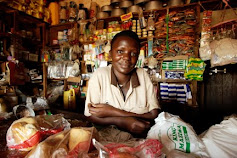I haven't touched on the food system in a bit, but I saw a trailer for a documentary that's got me really excited. Take a look:
I have a confession to make - I tried the raw foods diet for about three months before surrendering because of how much work it is! Plus, there is a tendency in the diet to rely more heavily on fats for sustenance; while I understand the good fat vs. bad fat argument, it's not good for your body to have to process such a high percentage of fats from mass quantities of nuts, seeds, avocados, and alternative sweeteners. But I am grateful to have spent this concentrated time learning about the incredible powers of greens, vegetables and fruits to fuel and heal your body.
The simple truth is this: your body wants to be healthy. What you put in your body can either directly hurt or help your health.
On another level, I think it's harder to grasp the significance of the food industry on our climate. I appreciated reading about the efforts of Bon Appetit to reduce their use of animal products, especially beef and cheese, and challenge the unbelievably high proportion of animal products that has become common in the American diet. Helene York writes this:
"What's become clear is that one-third of the world's greenhouse gas emissions are food-related. And study after study shows that some food products—meat and dairy products from ruminant animals (primarily cattle and lamb), highly processed foods derived from industrially grown grains, and air-freighted specialty foods—use a far greater percentage of resources than plant-based foods and whole grains, regardless of where those plant-based foods come from or who produces them. Another way of putting this is that the calories of energy expended to produce meat, processed foods, and specialty foods far outweigh the caloric energy those foods provide. (And they use a heck of a lot more water, too.) It's the very definition of 'unsustainable.' The American diet is dependent on this greenhouse gas-intensive food, and we waste (by eating too much or simply tossing) more than 25 percent of it."
Food for thought (pun intended :)... look at your weekly diet, and take note of the proportion of animal products vs. plant products. How many meals have meat included? When you include meat in a meal, what's the portion size? How many meals are pre-packaged and/or highly processed? Rather than looking at this argument as "vegetarian vs. carnivore," ask yourself where you can trim down - maybe from eating three meat-based meals a day to two, cutting out beef or another animal product, designating a day each week to be vegetarian-only, or even just preparing a smaller portion of meat. A great perspective shared by the raw food community regarding transitioning to a more plants-based diet is this: rather than thinking about what you're cutting out, think of all the ways you can incorporate more greens, vegetables and fruits. Think creatively and abundantly, rather than conservatively! There are so many fantastic vegetarian recipes out there - and they are so easy to find. May you be happy and healthy!
Saturday, April 16, 2011
Subscribe to:
Post Comments (Atom)


No comments:
Post a Comment